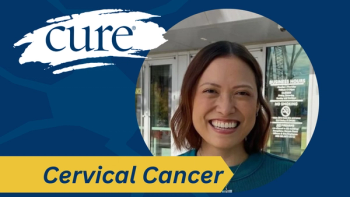
Longer Hormone Therapy After Main Treatments Delays Prostate Cancer Metastasis
Two years of the hormone treatment androgen-deprivation therapy (ADT) after radiotherapy and radical prostatectomy tended to improve metastasis-free survival for patients with prostate cancer, study results showed.
The addition of two years of androgen-deprivation therapy (a type of hormone therapy) after radiotherapy and radical prostatectomy (removal of the prostate and surrounding lymph nodes) tended to improve outcomes in men with prostate cancer, according to findings from the RADICALS-HD clinical trial.
Study results, which were presented at the 2022
“Up until now, doctors and patients have had to depend on opinion really to choose whether or not to have hormones with their postoperative radiotherapy, and so these results will now help doctors and patients in the future to have an evidence-based choice,” Dr. Chris Parker, a consultant clinical oncologist at The Royal Marsden NHS Foundation Trust in London, said in a press briefing at the meeting.
When evaluating the duration of the added therapy, 24 months of androgen-deprivation therapy improved metastasis-free survival, compared with just six months of the hormone therapy, with 10-year metastasis-free survival rates of 78% and 72%, in the 24-month and six-month groups, respectively.
Moreover, the time to salvage therapy was delayed; however, overall survival (time from treatment until death from any cause) was not improved with the longer administration of androgen-deprivation therapy.
When evaluating the efficacy of androgen-deprivation therapy with radiotherapy, compared to no hormone therapy, six-month hormone therapy failed to improve metastasis-free survival, with 10-year metastasis-free survival rates of 79% and 80%, respectively. Similar to the long-course therapy comparison, time to salvage androgen-deprivation therapy was delayed with six months of hormone therapy; however, overall survival was not improved with six months of androgen-deprivation therapy compared to no androgen-deprivation therapy.
“When men are getting radiotherapy for prostate cancer as their initial treatment, we know that the addition of hormone therapy improves the efficacy and survival. We also know that longer courses of hormone therapy are more effective than shorter courses of therapy,” Parker said. “However, when men are getting radiotherapy after surgery, we don’t know about the role of hormone therapy.”
Therefore, in the randomized, controlled trial, investigators aimed to evaluate the use and duration of hormone therapy with postoperative radiation therapy by randomizing patients to receive either no androgen-deprivation therapy, six months of androgen-deprivation therapy (short course) or 24 months (long course) of hormone therapy.
“So, the objectives of the trial were to test the efficacy of adding hormone therapy to postoperative radiotherapy and also to compare the efficacy of short-course and long-course hormone therapy,” Parker explained.
In two separate comparisons, investigators compared radiation alone versus short-course androgen-deprivation therapy (1,480 patients), and also short-course hormone therapy versus long-course hormone therapy (1,523 patients).
The trial was conducted in the U.K., Canada, Denmark and Ireland.
The main eligibility criteria were comprised of indication for radiation therapy after previous radical prostatectomy and no previous postoperative androgen-deprivation therapy.
The main goal of the trial was to determine differences in metastasis-free survival. The investigators also wanted to analyze the time to salvage androgen-deprivation therapy and overall survival.
“The new information from this important study will ensure clinicians can better tailor treatment for prostate cancer patients following surgery and help facilitate important discussions,” Parker said in a press release. “This will mean some receive a more effective treatment while sparing others unnecessary intervention.”
For more news on cancer updates, research and education, don’t forget to




